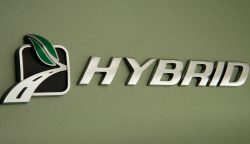— A Ford hybrid class action lawsuit has been dismissed because Ford had already recalled the hybrid vehicles before the lawsuit was filed, making the lawsuit moot.
As in the case of multiple class action lawsuits, the plaintiffs didn't sue until after Ford announced a recall for the same engine problem.
And in this case, out of the 14 Ford owners who sued, none of them allege their engines had any problems with leaks or fires.
However, the Ford class action lawsuit alleges these hybrid vehicles equipped with 2.5-liter engines are defective.
- 2020-2022 Ford Escape Hybrid
- 2022 Ford Maverick Hybrid
- 2021-2022 Lincoln Corsair Hybrid
Lead plaintiff Anthony Pacheco owns a Ford Maverick he purchased in April 2022, or what he calls the "Fire Defect Vehicle."
The plaintiff doesn't allege he had any problems with his Maverick and the vehicle was repaired for free by Ford under a recall. But the plaintiff contends the recall repairs aren't good enough.
According to the Ford hybrid class action lawsuit, the engines can leak large quantities of engine oil or fuel vapors that can be exposed to hot ignition sources and cause underhood fires.
A Ford hybrid recall was announced in July 2022, and in June 2022 Ford knew of 23 incidents of fires or other problems under the hoods.
"Of the 23 reports, Ford’s CCRG has categorized the warranty and field reports as: nine describing under hood or vehicle fire, six reporting localized under hood melting, seven describing under hood smoke, and one that did not contain sufficient detail to characterize. Ford is not aware of any reports of accident or injury related to this condition." — Ford
Official vehicle safety recalls have safety regulator overlords known as the National Highway Traffic Safety Administration which must approve all actions and repairs.
“In the event of an engine failure, significant quantities of engine oil and/or fuel vapor may be released into the under hood environment and may migrate to and/or accumulate near ignition sources resulting in potential under hood fire, localized melting of components, or smoke.” — NHTSA's Ford hybrid safety recall report
In addition, Ford estimated 1% or less of the hybrid vehicles were affected by the problem.
Ford dealers were told to modify the shields under the engines by drilling holes, and dealers were also advised to modify the active grille shutter systems by removing four blinds. This would improve air flow through the engine compartment and allow fluid and vapors to escape.
But the Ford hybrid class action lawsuit alleges the repairs cause even more problems and “sets the stage for future property damage and possible injury.”
According to the plaintiffs, drilling more holes could allow fluids or vapors to leak and cause environmental hazards, and removing the blinds from the grille shutter system allegedly “increases aerodynamic drag on the vehicles, resulting in decreased fuel efficiency.”
Ford Hybrid Class Action Lawsuit Dismissed
Judge George Caram Steeh heard the case and began by pointing out the Ford hybrid vehicle recall has the continuing oversight of federal safety regulators. In essence, the plaintiffs not only argue Ford's engineers are wrong about the recall repairs, but so are federal regulators who approved the repairs.
The judge found Ford has offered to repair the hybrid vehicles (before the lawsuit was filed), and Ford also offered reimbursements to owners if necessary.
The Ford hybrid class action lawsuit alleges Ford’s “fix” is inadequate, but the judge says the plaintiffs do not allege any safety risk remains after the vehicles are repaired for free.
"Plaintiffs also do not request that Ford repair their engines to address leaking – perhaps because none of them have experienced engine leaks. This alleged risk has not caused any actual, concrete injury to Plaintiffs." — Judge Steeh
According to the judge, the allegations that Ford's recall repairs won't work are "conclusory and speculative."
The judge also looked at the argument regarding alleged diminished fuel economy by removing some of the blinds from the active grille shutter system.
Although the plaintiffs make that claim, the judge notes none of the plaintiffs "alleged they experienced an actual reduction in fuel economy or articulated how this unspecified reduction in fuel economy is actionable."
And while the plaintiffs claim they deserve money for alleged "damages," the judge ruled their damages claim is based on an overpayment theory because the alleged defects diminished the value of their hybrid vehicles.
According to Judge Steeh, the Ford hybrid recall moots their damages claim because it removes "the defect upon which the plaintiffs’ diminished-value injury claim is based.”
"Plaintiffs have not shown a cognizable danger that the recall remedy supervised by NHTSA will fail, but only that they disagree with the approach taken by Ford to fix the problem. This argument does not counsel against a finding of prudential mootness." — Judge George Caram Steeh
The plaintiffs have now filed an appeal regarding the dismissal of the Ford hybrid class action lawsuit.
The Ford hybrid class action lawsuit was filed in the U.S. District Court for the Eastern District of Michigan: Anthony Pacheco v. Ford Motor Company.
The plaintiffs are represented by Hagens Berman Sobol Shapiro LLP, and The Miller Law Firm PC.

